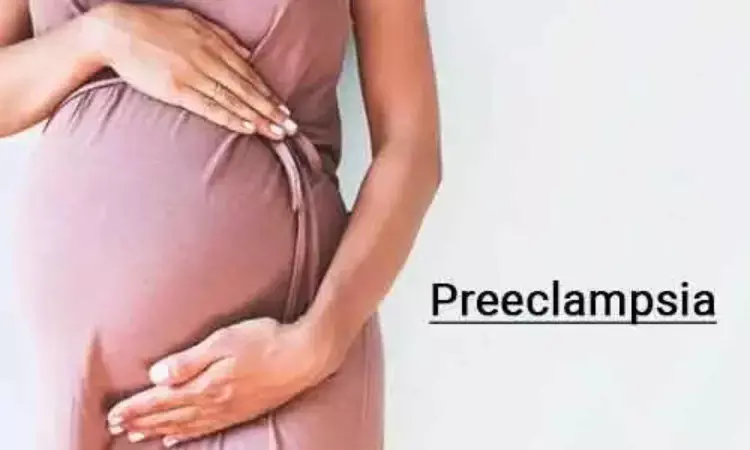- Home
- Medical news & Guidelines
- Anesthesiology
- Cardiology and CTVS
- Critical Care
- Dentistry
- Dermatology
- Diabetes and Endocrinology
- ENT
- Gastroenterology
- Medicine
- Nephrology
- Neurology
- Obstretics-Gynaecology
- Oncology
- Ophthalmology
- Orthopaedics
- Pediatrics-Neonatology
- Psychiatry
- Pulmonology
- Radiology
- Surgery
- Urology
- Laboratory Medicine
- Diet
- Nursing
- Paramedical
- Physiotherapy
- Health news
- Fact Check
- Bone Health Fact Check
- Brain Health Fact Check
- Cancer Related Fact Check
- Child Care Fact Check
- Dental and oral health fact check
- Diabetes and metabolic health fact check
- Diet and Nutrition Fact Check
- Eye and ENT Care Fact Check
- Fitness fact check
- Gut health fact check
- Heart health fact check
- Kidney health fact check
- Medical education fact check
- Men's health fact check
- Respiratory fact check
- Skin and hair care fact check
- Vaccine and Immunization fact check
- Women's health fact check
- AYUSH
- State News
- Andaman and Nicobar Islands
- Andhra Pradesh
- Arunachal Pradesh
- Assam
- Bihar
- Chandigarh
- Chattisgarh
- Dadra and Nagar Haveli
- Daman and Diu
- Delhi
- Goa
- Gujarat
- Haryana
- Himachal Pradesh
- Jammu & Kashmir
- Jharkhand
- Karnataka
- Kerala
- Ladakh
- Lakshadweep
- Madhya Pradesh
- Maharashtra
- Manipur
- Meghalaya
- Mizoram
- Nagaland
- Odisha
- Puducherry
- Punjab
- Rajasthan
- Sikkim
- Tamil Nadu
- Telangana
- Tripura
- Uttar Pradesh
- Uttrakhand
- West Bengal
- Medical Education
- Industry
Chronic Hepatitis B May Raise Risk of Pre-eclampsia and Eclampsia, Genetic Study Finds

China: A recent study published in the Journal of Obstetrics and Gynaecology has found compelling genetic evidence suggesting that chronic hepatitis B (CHB) infection significantly raises the risk of developing pre-eclampsia and eclampsia during pregnancy. The findings, stemming from a Mendelian randomization (MR) analysis, emphasize the importance of early hepatitis B virus (HBV) screening and personalized maternal care in affected women.
The study was led by Rui Pu and colleagues from Zhejiang University School of Medicine, China. Using genetic data from large-scale population cohorts, the researchers aimed to explore whether a causal relationship exists between CHB infection and hypertensive complications during pregnancy, namely pre-eclampsia, a condition marked by high blood pressure and organ dysfunction, and eclampsia, a severe progression involving seizures.
To investigate this potential link, the team employed a two-sample MR approach, utilizing genome-wide association study (GWAS) summary statistics. CHB-related genetic data were obtained from the UK Biobank involving over 350,000 individuals. The outcome data for pre-eclampsia and eclampsia were drawn from two large Finnish datasets (FinnGen), comprising over 118,000 and 126,000 participants, respectively.
The key findings of the study were as follows:
- Women with a genetic predisposition to chronic hepatitis B (CHB) infection had a 15% higher risk of developing pre-eclampsia (OR = 1.15).
- These women also had a 56% higher risk of developing eclampsia (OR = 1.56).
- The associations were statistically significant.
- The findings remained consistent across multiple sensitivity analyses, supporting the reliability of the results.
“The study provides genetic support for a causal link between chronic hepatitis B infection and increased susceptibility to pregnancy-related hypertensive disorders,” the authors noted. They further stressed that these findings could have important clinical implications for maternal healthcare, especially in regions with high HBV prevalence.
The research suggests that including hepatitis B status in maternal risk assessments could help identify women at greater risk of developing pre-eclampsia or eclampsia. Early screening for HBV in women of childbearing age and enhanced antenatal surveillance, such as regular monitoring of blood pressure and protein levels in urine, may play a key role in reducing complications.
The authors also advocate for integrating CHB status into future obstetric risk-prediction models. By doing so, healthcare providers can deliver more individualized care plans for pregnant women living with CHB, thereby potentially improving both maternal and fetal outcomes.
As plant-based diets, lifestyle diseases, and viral infections increasingly intersect in global health, this study emphasizes the importance of a multidisciplinary approach to maternal care, one that considers both infectious and genetic risk factors for optimal pregnancy management.
Reference:
Pu, R., Wang, Z., Shang, X., Lu, J., Xu, J., & Xing, Y. (2025). Chronic hepatitis B infection and pre-eclampsia/eclampsia: a Mendelian randomisation study. Journal of Obstetrics and Gynaecology, 45(1). https://doi.org/10.1080/01443615.2025.2500972
Dr Kamal Kant Kohli-MBBS, DTCD- a chest specialist with more than 30 years of practice and a flair for writing clinical articles, Dr Kamal Kant Kohli joined Medical Dialogues as a Chief Editor of Medical News. Besides writing articles, as an editor, he proofreads and verifies all the medical content published on Medical Dialogues including those coming from journals, studies,medical conferences,guidelines etc. Email: drkohli@medicaldialogues.in. Contact no. 011-43720751


